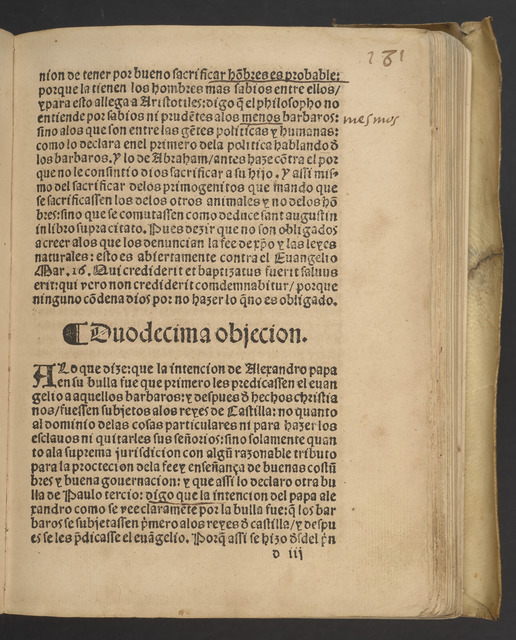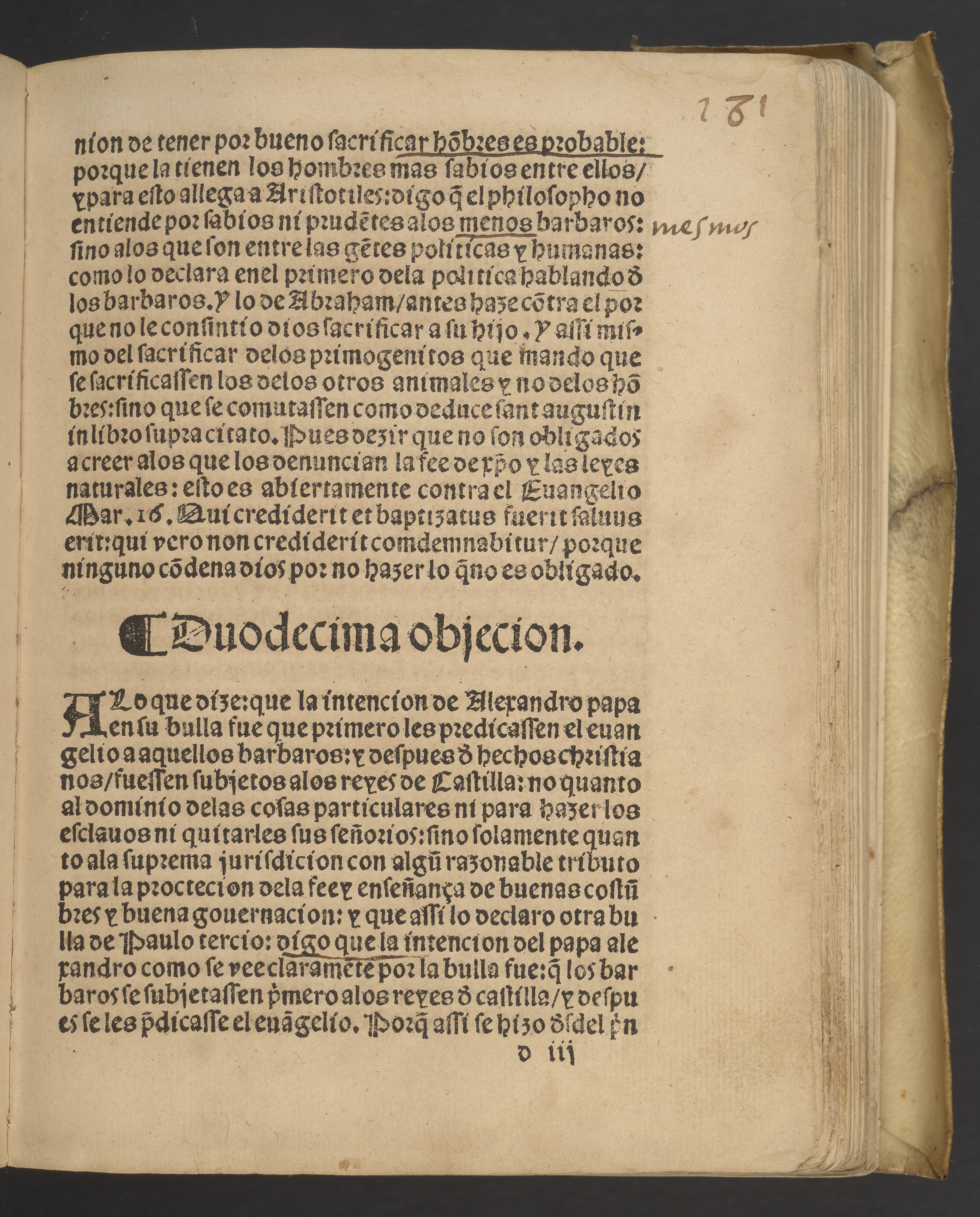XO58 Aqui se contiene una disputa o controuersia: entre el obispo do[n] fray Bartholome delas Casas/o Casaus/ obispo que fue dela ciudad Real de Chiapa/ que es en las Indias/ parte dela Nueva España: y el doctor Gines de Sepulveda coronista del Emperador nuestro señor: sobre q[ue] el doctor contendia q[ue] las conquistas delas Indias contra los Indios eran licitas y el obispo por el co[n]trario d[e]fendio y affirmo auer sido y ser i[m]possible no serlo: tiranicas, injustas [y] iniquas....

Full description
Bartolomé de las Casas, Juan Ginés de Sepúlveda, Domingo De Soto, Aqui se contiene vna disputa o controuersia: entre el obispo don fray Bartholome delas Casas/o Casaus/ obispo que fue dela ciudad Real de Chiapa/ que es en las Indias/ parte dela Nueva España: y el doctor Gines de Sepulveda coronista del Emperador nuestro señor: sobre q[ue] el doctor contendia q[ue] las conquistas delas Indias contra los Indios eran licitas: y el obispo por el co[n]trario d[e]fendio y afirmo auer sido y ser i[m]possible no serlo: tiranicas/ injustas [y] iniquas. La qual questio se ve[n]tilo & disputo en presencia d[e] muchos letrados theologos & juristas en vna co[n]gregacion que mando Su Magestad juntar el año de mil & q[ui]nie[n]tos y cincue[n]ta en la villa de Valladolid (Sevilla: Trujillo, 1552 [and 1553])
Penn Libraries, Kislak Center for Special Collections, Rare Books and Manuscripts, F1411.C36 1553
This composite volume contains works printed between 1552 and 1553, reflecting the sharp debates held in Valladolid (1550-1551) on the treatment of the Indigenous peoples in the Americas. Since their arrival, Spanish conquistadores had violently exploited America's inhabitants, enslaving them and forcing their conversion to Christianity. The volume collects writings by the theologian Juan Ginés de Sepúlveda (1490-1573), who justified the enslavement of the Indigenous people, claiming that they were not able to govern themselves, and the Dominican Bartolomé de la Casas (1484-1586), who defended the rationality of the Indigenous and denounced the injustice of their enslavement. Las Casas, who had a first-hand experience of the Spanish violence, having spent years in the Americas, protested to the Emperor Charles V, prompting the debate in Valladolid. Las Casas assembled the volume, alternating his opponents' positions with his replies and solutions. Sepúlveda’s arguments are an endeavor to justify the Spanish conquest and subsequent colonization of the Americas, for which he extensively uses Aristotelian doctrines (Sepúlveda had been a student of the renowned Aristotelian professor Pietro Pomponazzi and translated many of the Philosopher's works). Aristotle makes his appearance on folio 181r, where Sepúlveda discusses the concept of "barbaros," a term used in the first book of the Politics to indicate non-Greek people lacking the ability of self-government, therefore intended to serve others. Exploiting Aristotle’s concepts of "barbarians" and "natural slaves", Sepúlveda applies them to the indigenous populations of the Americas as a way to justify their enslavement and submission to ‘rational’ and ‘civilized’ Spain.
Nicola Guida
Comments
to view and add comments.
Annotations
No one has annotated a text with this resource yet.


